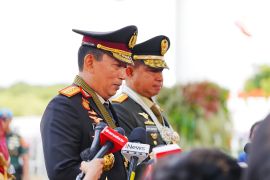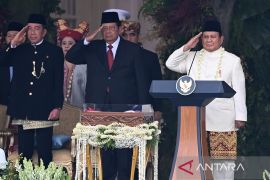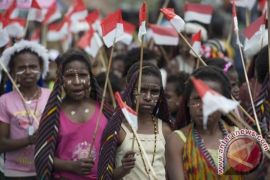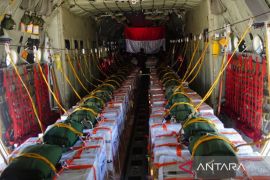The recent half-day seminar was organized by the embassies of various African countries and the Ministry of Foreign Affairs of the Republic of Indonesia.
All five ambassadors from the African countries of Zimbabwe, South Africa, Nigeria, Tunisia, and Sudan in Jakarta spoke about the progress made by Africa.
Also, three Indonesian businessmen, who were invited to the forum, shared their experiences in investing in some African countries.
Deputy Foreign Minister Dino Patti Djalal noted in his opening address at the seminar that Indonesia and the African countries were evolving.
"If you look at Africa and Indonesia today, we are not the same as we were 50 or 60 years ago. Africa has changed, just as Indonesia has," Dino pointed out.
Zimbabwean Ambassador to Indonesia Alice Mageza, South African Ambassador Pakamisa Augustine Sifuba, Nigerian Ambassador Mohammad Lawal Sulaiman, Tunisian Ambassador Mourad Belhassen, and Sudanese Ambassador Abdurrahim El Siddig, respectively gave their presentations and views during the seminar.
Ambassador Mageza recalled the media stereotyping Africa as the "hopeless continent."
"I could understand such a label that the media recently published an article titled Africa Rising: a hopeful continent," she remarked.
The Economist and TIME magazine have both published articles in the last two years titled "Africa Rising" replete with positive economic statistics and images of children flying rainbow kites in the shape of the African continent.
Many of the fastest-growing economies in the world are in Africa. Six of the worlds 10 fastest-growing economies between 2001 and 2010 were in Africa, according to The Economist.
The International Monetary Fund revealed that during the period between 2011 and 2015, African countries will occupy seven of the top 10 spots.
"One of the biggest transformations in Africa over the past 10 years has been the widespread achievements of political, economic and social stability across the continent," Ambassador El Siddig noted in his statement.
According to him, this has created conducive conditions for not only high, but also resilient growth. While pockets of instability and strife still exist, these are isolated and contained.
"Overall, African governments have made progress in managing inflation, strengthening national budgets, and tightening security," the ambassador remarked.
He also pointed out that these changes have propelled Africa to become one of the worlds fastest-growing and most promising frontier markets today.
The continents gross domestic product (GDP) is projected to annually grow more than 5 percent on average, higher than the expected global growth rate of 3.6 percent.
The International Monetary Fund has forecast that seven of the worlds 10 fastest-growing economies will be in Africa. East Africa recorded the fastest growth, above 6 percent. Low-income countries also recorded growth of above 6 percent.
These are expected to expand by more than 6 percent every year until 2015 alongside economic giants such as China and India. With growth in the G7 and BRICS slowing, frontier markets-many of which are in Africa-offer higher returns.
External financial flows are expected to surpass US$200 billion in 2014, four times the value recorded in 2000. Foreign investment-direct and portfolio- has now fully recovered from the effects of the crisis and is projected to reach a record US$80 billion in 2014, with manufacturing and services attracting an increasing share of the continents projects.
The poverty levels are falling and education and health outcomes are improving. Yet important challenges remain. Among these, social exclusion, income inequality, and vulnerability to economic, social, and environmental risks continue to threaten Africas long-term aspirations to emerge as a people-centric and prosperous continent.
For Indonesia, Africa offers vast opportunities for its services sectors to migrate to a new non-traditional market and flourish where the sky is the limit in all works of life: food security, energy, mining, agribusiness and others, Ambassador El Siddig emphasized.
Unlike China or India, Indonesia is not a large importer of Africas natural resources or commodities, but Indonesia earlier exported several of its commodities to Africa, especially to East African countries such as Sudan, Kenya, and Ethiopia.
"Here, we need to strike a kind of a balance in this regard as it is always in favor of Indonesia," he stated.
The continent also offers tremendous opportunities for Indonesian Small and Medium Enterprises by collaborating with the local enterprises. There is an opportunity for Indonesia to become a cargo hub for Southeast Asia and the Asia-Pacific as a whole, as the cargo volumes between Africa and the Asia-Pacific grew by 17 percent.
"I want to say that Africa is not only rising but also a Roaring Lion in this century," noted Ambassador Mageza, who is also the dean of the group of African ambassadors and has been in Indonesia for a decade.
(T.M016/INE/o001)
EDITED BY INE
(T.M016/A/KR-BSR/O001)
Reporter: Mohammad Anthoni
Editor: Aditia Maruli Radja
Copyright © ANTARA 2014











